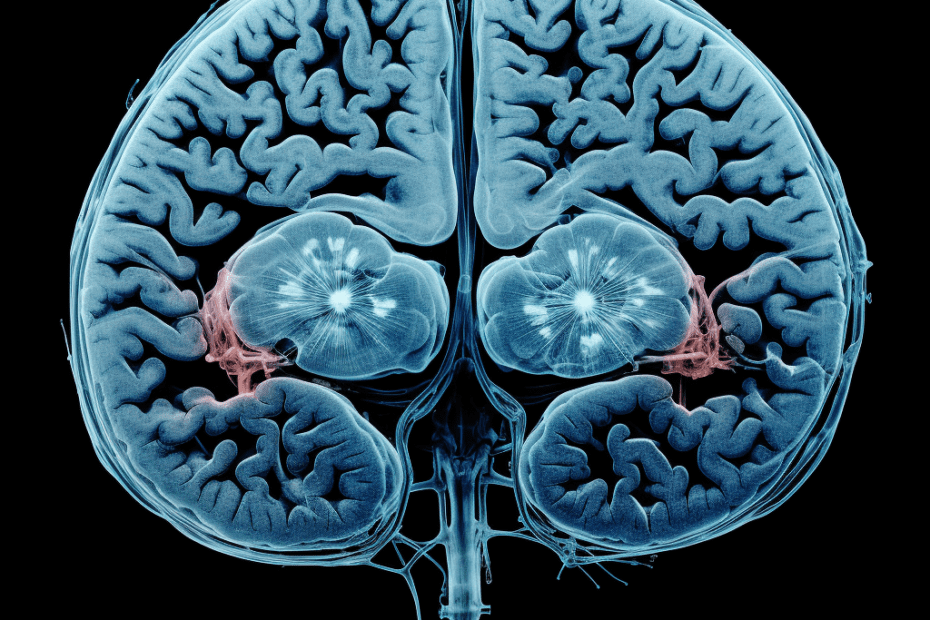Mental Agility Matters: Boosting Cognitive Health in Seniors
What is mental agility?
Mental agility refers to the ability to think quickly and adapt to new situations. It involves being able to solve problems, learn new information, and make decisions efficiently. In the context of cognitive health in seniors, mental agility plays a crucial role in maintaining a sharp mind and reducing the risk of cognitive decline. By engaging in activities that stimulate the brain, such as puzzles, reading, and learning new skills, seniors can enhance their mental agility and promote overall cognitive well-being.
Importance of cognitive health in seniors
Cognitive health plays a crucial role in the overall well-being of seniors. As individuals age, their cognitive abilities tend to decline, making it more challenging to perform daily tasks and maintain independence. However, by prioritizing cognitive health, seniors can enhance their mental agility and maintain a higher quality of life. Engaging in activities that stimulate the brain, such as puzzles, reading, and learning new skills, can help seniors improve memory, attention, and problem-solving abilities.
Additionally, maintaining social connections and participating in regular physical exercise have been shown to promote cognitive health in seniors. By recognizing the importance of cognitive health and taking proactive steps to maintain it, seniors can continue to lead fulfilling and independent lives.
Factors that affect cognitive health
There are several factors that can significantly impact cognitive health in seniors. One of the most important factors is physical activity. Regular exercise has been shown to improve brain function and reduce the risk of cognitive decline. Another factor is diet. A healthy diet rich in fruits, vegetables, and omega-3 fatty acids can support brain health and enhance cognitive abilities.
Additionally, social engagement plays a crucial role in maintaining cognitive health. Interacting with others, participating in social activities, and staying mentally active can help seniors stay sharp and prevent cognitive decline. Lastly, sleep quality and quantity are essential for cognitive health. Sufficient and restful sleep allows the brain to recharge and consolidate memories. By considering these factors and making lifestyle choices that promote cognitive health, seniors can boost their mental agility and overall well-being.
Exercise for the mind

Physical exercise and cognitive function
Physical exercise has been shown to have a positive impact on cognitive function in seniors. Regular physical activity, such as walking, jogging, or swimming, can improve memory, attention, and processing speed. Exercise increases blood flow to the brain, which promotes the growth of new neurons and strengthens existing connections. Additionally, physical exercise has been found to reduce the risk of developing cognitive decline and dementia. Therefore, incorporating regular exercise into the daily routine of seniors is crucial for maintaining and boosting cognitive health.
Mental exercises to improve mental agility
Mental exercises are a crucial component in improving mental agility in seniors. Engaging in activities that challenge the brain can help enhance cognitive function and promote overall cognitive health. Some effective mental exercises include puzzles, crosswords, Sudoku, and memory games.
These activities stimulate different areas of the brain, improving memory, concentration, and problem-solving skills. Additionally, learning new skills or languages, reading books, and engaging in social interactions can also contribute to mental agility. By incorporating these mental exercises into their daily routines, seniors can boost their cognitive health and maintain mental sharpness.
The benefits of brain training games
Brain training games have become increasingly popular in recent years, and for good reason. These games are designed to challenge and stimulate the brain, helping to improve cognitive function and mental agility. Research has shown that regular engagement in brain training games can lead to a variety of benefits for seniors, including improved memory, enhanced problem-solving skills, and increased attention span. In addition, these games can provide a fun and enjoyable way for seniors to stay mentally active and engaged, reducing the risk of cognitive decline. By incorporating brain training games into their routine, seniors can boost their cognitive health and maintain a sharp mind as they age.
Nutrition for cognitive health
The impact of a healthy diet on brain function
A healthy diet plays a crucial role in maintaining and improving brain function, especially in seniors. Research has shown that certain nutrients, such as omega-3 fatty acids, antioxidants, and vitamins, have a positive impact on cognitive health. Omega-3 fatty acids, found in fatty fish like salmon and walnuts, have been linked to improved memory and cognitive performance.
Antioxidants, found in fruits and vegetables, help protect the brain from oxidative stress and reduce the risk of age-related cognitive decline. Vitamins, such as B vitamins and vitamin E, are also important for brain health as they support the production of neurotransmitters and protect against oxidative damage. By incorporating a variety of nutrient-rich foods into their diet, seniors can enhance their mental agility and promote long-term cognitive health.
Superfoods for cognitive health
Maintaining a healthy diet is crucial for maintaining cognitive health in seniors. Incorporating superfoods into their meals can provide a significant boost to their brain function. Some of the best superfoods for cognitive health include blueberries, which are rich in antioxidants that protect the brain from damage, fatty fish like salmon that are high in omega-3 fatty acids which support brain health, and dark chocolate which contains flavonoids that improve blood flow to the brain. By including these superfoods in their diet, seniors can enhance their mental agility and promote long-term cognitive health.
The role of antioxidants in maintaining cognitive health
Antioxidants play a crucial role in maintaining cognitive health, especially in seniors. These powerful compounds help protect the brain from oxidative stress, which can lead to cognitive decline and neurodegenerative diseases. By neutralizing harmful free radicals, antioxidants help reduce inflammation and promote healthy brain function. Some common antioxidants include vitamins C and E, as well as flavonoids found in fruits and vegetables. Including antioxidant-rich foods in the diet and taking supplements can help seniors enhance their mental agility and preserve cognitive health.
Social engagement and cognitive health

The importance of social connections for cognitive health
Social connections play a crucial role in maintaining cognitive health, especially in seniors. Engaging in regular social interactions and building strong relationships can help stimulate the brain and improve mental agility. Studies have shown that seniors who have a strong social network are less likely to experience cognitive decline and have a lower risk of developing conditions such as dementia. Social connections provide opportunities for intellectual stimulation, emotional support, and the sharing of experiences, all of which contribute to overall cognitive well-being. It is important for seniors to actively seek out social connections and participate in activities that foster social engagement to enhance their cognitive health.
Activities to promote social engagement in seniors
Engaging in social activities is essential for seniors to maintain cognitive health and mental agility. There are various activities that can promote social engagement among seniors, such as joining community clubs or organizations, participating in group exercise classes, attending social events or gatherings, volunteering for local charities, and joining hobby groups or classes. These activities not only provide opportunities for seniors to interact with others but also offer a sense of belonging and purpose. By staying socially engaged, seniors can enhance their cognitive abilities, reduce the risk of cognitive decline, and improve their overall well-being.
The benefits of volunteering for cognitive health
Volunteering has numerous benefits for cognitive health, especially in seniors. Engaging in volunteer activities helps seniors stay mentally active and agile. It provides opportunities for social interaction and helps reduce feelings of loneliness and isolation. Volunteering also promotes a sense of purpose and fulfillment, which can have a positive impact on cognitive function. Additionally, participating in volunteer work can enhance problem-solving skills, memory, and overall brain health. By giving back to the community, seniors not only contribute to the well-being of others but also improve their own cognitive well-being.
Sleep and cognitive function
The link between sleep and cognitive health
Sleep plays a crucial role in maintaining cognitive health, especially in seniors. Numerous studies have shown that a good night’s sleep is essential for optimal brain function and memory consolidation. During sleep, the brain undergoes important processes that help clear toxins and waste products, which can accumulate throughout the day. Additionally, sleep deprivation has been linked to an increased risk of cognitive decline, including problems with attention, concentration, and decision-making. Therefore, prioritizing quality sleep is vital for seniors to enhance their mental agility and overall cognitive well-being.
Tips for improving sleep quality in seniors
Getting enough sleep is crucial for maintaining cognitive health in seniors. Here are some tips to improve sleep quality: 1. Establish a regular sleep schedule and stick to it. 2. Create a relaxing bedtime routine, such as reading a book or taking a warm bath. 3. Make sure the bedroom environment is conducive to sleep, with a comfortable mattress, proper lighting, and a quiet atmosphere. 4. Avoid caffeine and heavy meals close to bedtime. 5. Engage in regular physical activity during the day to promote better sleep at night. By following these tips, seniors can enhance their sleep quality and support their overall cognitive health.
The role of napping in enhancing cognitive function
Napping has been found to play a significant role in enhancing cognitive function, particularly in seniors. Research has shown that a short nap during the day can improve memory, attention, and overall mental agility. Napping allows the brain to rest and recharge, helping to combat mental fatigue and improve cognitive performance. Additionally, napping has been linked to better problem-solving skills and creativity. By incorporating regular naps into their daily routine, seniors can support their cognitive health and maintain optimal brain function.
Conclusion
Taking proactive steps for cognitive health
Maintaining cognitive health is essential for seniors to lead a fulfilling and independent life. There are several proactive steps that can be taken to boost cognitive health. Engaging in regular physical exercise helps improve blood flow to the brain, promoting neuroplasticity and enhancing cognitive function. Additionally, adopting a healthy diet rich in fruits, vegetables, whole grains, and omega-3 fatty acids can provide essential nutrients that support brain health. Mental stimulation through activities such as puzzles, reading, and learning new skills can also help keep the mind sharp. Lastly, maintaining social connections and participating in social activities can contribute to overall cognitive well-being. By taking these proactive steps, seniors can enhance their mental agility and promote long-term cognitive health.
The importance of a holistic approach
When it comes to boosting cognitive health in seniors, taking a holistic approach is crucial. A holistic approach considers all aspects of a person’s well-being, including their physical, mental, and emotional health. By addressing these different areas, seniors can enhance their mental agility and overall cognitive function. Engaging in regular physical activity, maintaining a balanced diet, participating in social activities, and practicing mental exercises are all important components of a holistic approach. Additionally, managing stress levels and getting enough sleep are also vital for maintaining cognitive health. By adopting a holistic approach, seniors can improve their mental agility and enjoy a higher quality of life.
Empowering seniors to maintain mental agility
As seniors age, maintaining mental agility becomes increasingly important for their overall cognitive health. Empowering seniors to engage in activities that challenge their brain can help improve memory, attention, and problem-solving skills. This can be achieved through various activities such as puzzles, reading, learning new skills, and social interactions. Additionally, regular physical exercise and a healthy diet can also contribute to maintaining mental agility. By providing seniors with the necessary resources and support, we can help them stay mentally sharp and enhance their quality of life.

